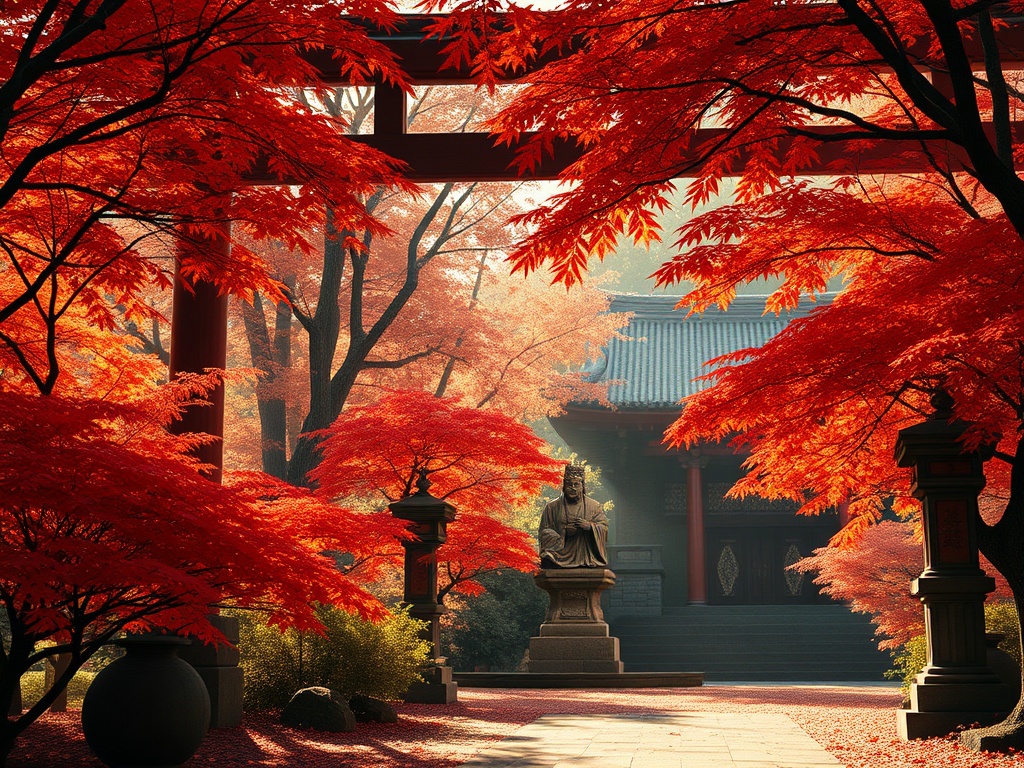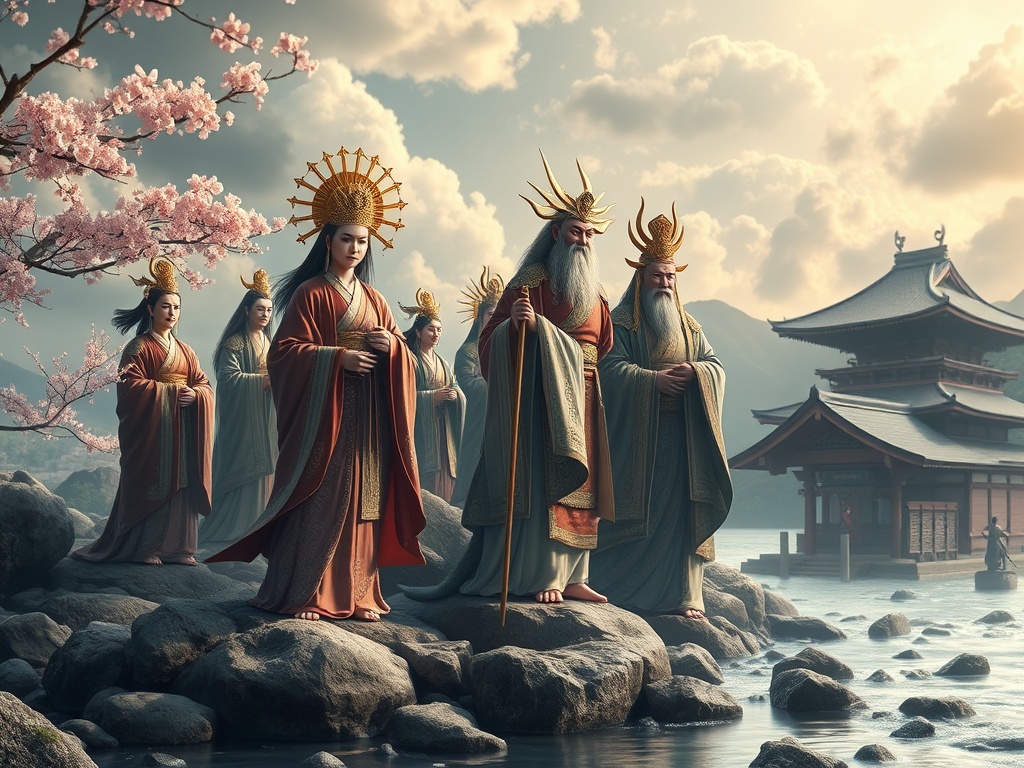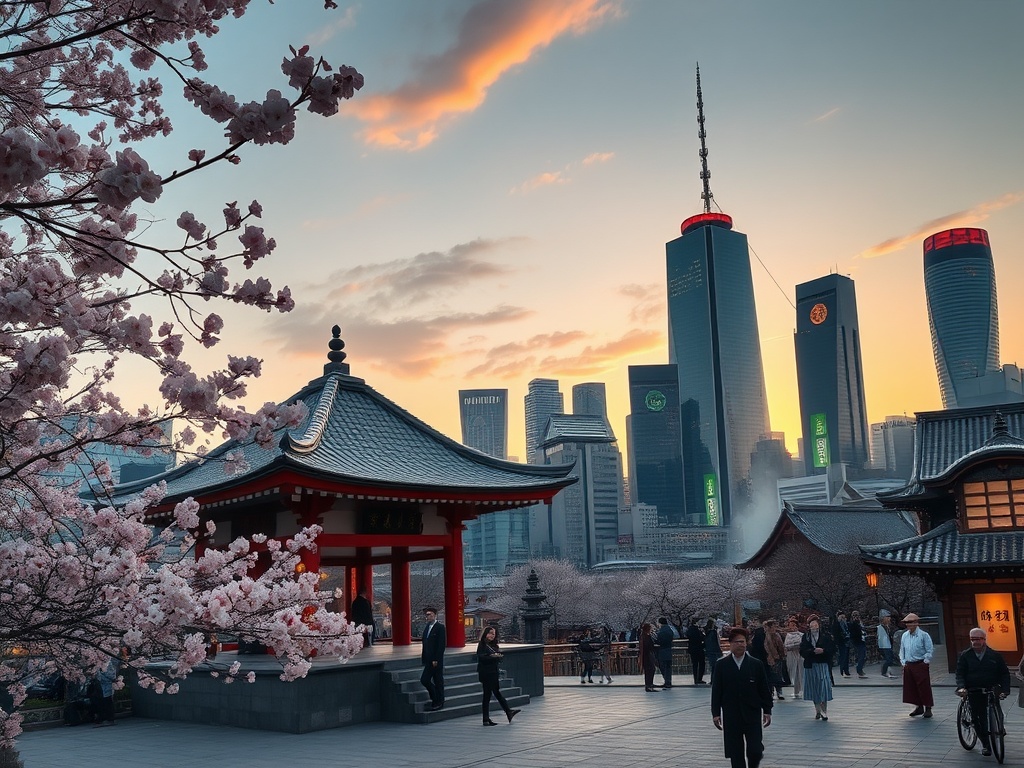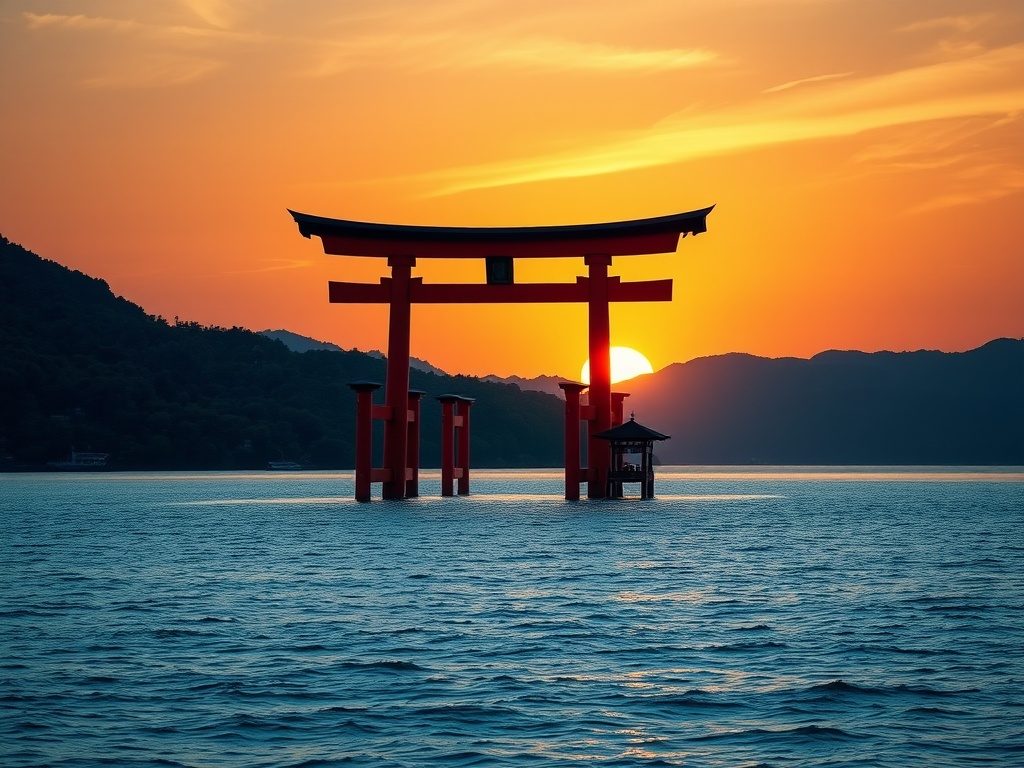Unveiling the Divine: Exploring the Pantheon of Japanese Leadership Gods
Win a Free Trip to Japan!
Experience cherry blossoms and ancient temples
Embark on a mystical journey through Japan, where ancient legends and divine beings intertwine to create a captivating tapestry of culture and spirituality. The Land of the Rising Sun is not only famed for its breathtaking landscapes and vibrant traditions but also for its rich pantheon of gods and goddesses that have inspired leaders for centuries. These deities are more than just myth; they are the epitome of wisdom, courage, and strategic prowess, embodying the very essence of what it means to be a leader.
In the realm of Japanese mythology, the gods of strategy and wisdom have played a pivotal role in shaping the leadership ethos of the nation. At the forefront is the revered god Hachiman, known as the divine protector of warriors and the embodiment of strategic genius. Worshipped by samurai and generals alike, Hachiman’s influence is felt in the art of war and the pursuit of honor.
Another prominent figure is Tenjin, the god of scholarship and intelligence. As travelers explore ancient shrines dedicated to Tenjin, they are invited to delve into a world where wisdom reigns supreme, offering a glimpse into the intellectual prowess that has guided Japan through eras of change.
No exploration of Japan’s divine leadership would be complete without paying homage to the gods of prosperity and fortune. Chief among them is Ebisu, the jovial deity of wealth and abundance. His cheerful demeanor and boundless generosity have made him a beloved figure among merchants and fishermen, symbolizing prosperity in both commerce and community.
Additionally, the presence of Daikokuten, the god of fortune and agriculture, underscores the importance of balance and harmony in leadership. His image, often depicted holding a mallet of plenty, serves as a reminder of the bountiful rewards that await those who lead with integrity and foresight.
- Hachiman: Protector of warriors, god of strategic genius.
- Tenjin: God of scholarship and intelligence.
- Ebisu: Jovial deity of wealth and abundance.
- Daikokuten: God of fortune and agriculture.
Whether you’re a seasoned traveler or an enthusiastic explorer, uncovering the stories of these divine figures will enrich your journey through Japan. Their timeless lessons offer a profound understanding of leadership that transcends generations, making your travels not only a feast for the eyes but also a journey for the soul.
From Myth to Modernity: The Influence of Leadership Deities in Japanese Culture
As you delve deeper into the mystical realms of Japanese mythology, you’ll discover how the ancient deities of leadership have transcended time, leaving an indelible mark on modern Japanese culture. These gods are not confined to the pages of history; their influence permeates the social fabric of Japan, shaping the principles and values that guide leaders today. Whether it’s the quiet wisdom imparted by the god of scholarship, Tenjin, or the strategic acumen of Hachiman, these divine figures continue to inspire and inform contemporary leadership practices across various spheres of Japanese life.
In modern Japan, the influence of Tenjin is unmistakable, especially in the realm of education. Revered as the god of scholarship, his legacy is celebrated annually during the Tenjin Matsuri, a festival that sees students and scholars paying homage to him in the hopes of academic success. Educational institutions across Japan often have shrines dedicated to Tenjin, where students seek his blessings before exams. This tradition underscores the enduring importance of knowledge and learning, reflecting a culture that values education as a cornerstone of leadership and progress.
The spirit of Hachiman continues to resonate within the martial arts community of Japan. As the protector of warriors and a paragon of strategic brilliance, his influence is evident in the disciplines of judo, kendo, and karate, where practitioners strive to embody his virtues of courage, honor, and discipline. Modern dojos often have a space dedicated to Hachiman, serving as a reminder of the samurai ethos that prioritizes mental acuity and moral integrity as much as physical prowess. This connection between ancient and modern practices illustrates the seamless integration of traditional values with contemporary life.
In conclusion, exploring the influence of Japanese leadership deities offers a unique perspective on how ancient beliefs continue to shape the ethos of modern Japan. As you journey through this vibrant country, let the stories of these gods enrich your understanding of its culture, providing a deeper appreciation for the profound wisdom that guides its leaders both past and present.
Sacred Sites and Shrines: Journey to the Abodes of Japan’s Leadership Gods
Discover the enchanting landscapes of Japan, where ancient mythology breathes life into sacred sites that have stood the test of time. These hallowed grounds are not just places of worship; they are gateways to understanding the values that have shaped Japanese leadership for generations. As you embark on this spiritual odyssey, you’ll walk the paths of samurai, scholars, and merchants who once sought the divine wisdom of the gods. Prepare to be captivated by the blend of history, culture, and spirituality that makes these sites a must-visit for any intrepid traveler.
A journey to Japan would be incomplete without visiting the revered Hachiman Shrines, where the spirit of the warrior god still lingers. These shrines, scattered across the country, offer a serene retreat for those seeking guidance in strategy and courage. The most famous among them, the Tsurugaoka Hachimangu in Kamakura, is a stunning testament to the divine protector of warriors. Nestled amidst cherry blossoms and tranquil ponds, this shrine invites visitors to reflect on the virtues of honor and bravery that Hachiman embodies. Here, visitors can participate in traditional rituals, gaining insight into the martial ethos that has influenced Japanese leadership throughout history.
Tenjin’s legacy is celebrated in numerous shrines dedicated to the god of scholarship, where the pursuit of knowledge is revered as a sacred duty. These educational sanctuaries, such as the Dazaifu Tenmangu in Fukuoka, offer a unique glimpse into Japan’s academic traditions. Surrounded by lush gardens and ancient architecture, the shrine serves as a pilgrimage site for students and scholars seeking Tenjin’s blessings for intellectual success. Visitors can partake in ceremonies and explore the cultural artifacts that underscore the enduring importance of education in Japanese society, reflecting a deep respect for wisdom as a cornerstone of leadership.
As you traverse these sacred sites, you’ll not only witness the architectural splendor and historical significance they hold but also gain a profound understanding of the values that continue to guide contemporary Japanese leadership. Each visit becomes a lesson in the timeless principles that transcend generations, offering a rich tapestry of experiences that blend the past with the present.
Rituals and Reverence: Understanding the Worship Practices of Japanese Leadership Deities
Embark on a fascinating journey into the heart of Japanese spirituality, where age-old rituals dedicated to leadership deities continue to captivate and inspire. As you navigate through the rich traditions of Shinto and Buddhist practices, you’ll discover how these sacred ceremonies offer a profound connection to the divine. Whether you’re an aficionado of cultural heritage or a seeker of spiritual experiences, understanding these practices will enrich your travels in Japan, providing a deeper appreciation for the timeless values that guide its leaders.
The Hachiman Shrines, revered as the sanctuaries of the warrior god, offer a unique glimpse into the martial traditions of Japan. Here, rituals are steeped in solemnity and grace, reflecting the god’s role as a protector and strategist. Visitors can witness or participate in traditional ceremonies such as the ‘Yabusame’—a dynamic horseback archery ritual that celebrates the warrior spirit. The rhythmic chants and the sound of the bowstring echoing through the shrine grounds create an atmosphere of reverence, transporting you back to a time when honor and valor were the pinnacles of leadership.
In a vibrant fusion of culture and spirituality, the annual Tenjin Matsuri pays homage to the god of scholarship. This festival, one of Japan’s most celebrated, transforms cities into a spectacle of color and sound, with processions and firework displays illuminating the night sky. Participants dress in traditional attire, and floats adorned with symbols of knowledge and learning parade through the streets. At the heart of this festival is the ritual of ‘Uchiwa-maki’, where sacred fans are distributed, symbolizing Tenjin’s blessings for academic success. As you immerse yourself in these festivities, you’ll experience firsthand the enduring respect for wisdom that permeates Japanese culture.
Legends of Power: Stories of the Gods Who Shaped Japan’s Leadership Ideals
Venture into the heart of Japan’s mythical past, where stories of divine power and influence continue to shape the ideals of leadership today. These captivating legends not only offer a glimpse into the spiritual fabric of Japan but also reveal the timeless principles of wisdom, courage, and prosperity that have guided its leaders across generations. As you travel through Japan, these stories will illuminate the essence of leadership, drawing you into a world where gods and humans are interwoven in a rich tapestry of lore and tradition.
Among the pantheon of Japanese gods, Hachiman stands as an emblem of strategic brilliance and martial valor. Often depicted as a formidable warrior, Hachiman’s lore is deeply embedded in the tales of ancient battles and the rise of the samurai. According to legend, Hachiman guided the legendary Empress Jingu on her conquest of Korea, a testament to his role as a divine strategist. His influence is not confined to the battlefield; it extends into the realms of political maneuvering and statecraft, embodying the strategic acumen that leaders draw upon to navigate the complexities of governance. As you visit the Hachiman Shrines across Japan, you’ll be reminded of the enduring legacy of this god in shaping the nation’s ethos of leadership.
The tale of Tenjin, once a mortal scholar named Sugawara no Michizane, is a story of intellectual prowess and divine justice. Revered as the god of scholarship and learning, Tenjin’s transformation from a respected academic to a deity underscores the cultural reverence for knowledge and wisdom. His legend speaks of a man wronged by political rivals, yet vindicated by celestial intervention. Today, Tenjin is celebrated through festivals and shrines that honor his contributions to Japanese education and leadership ideals. A visit to the Tenjin Shrines offers travelers a poignant reminder of the power of knowledge and the respect accorded to those who wield it with integrity.
Symbolism and Significance: Decoding the Iconography of Leadership Gods in Japan
Embarking on a journey through the spiritual landscape of Japan, one cannot overlook the profound symbolism embedded in the iconography of its leadership gods. These divine figures, steeped in mythology and tradition, offer a window into the values and ideals that have shaped Japanese culture and leadership for centuries. As you traverse sacred sites and cultural landmarks, you’ll encounter a rich tapestry of symbols that speak to the enduring legacy of these gods, inviting you to delve deeper into their stories and the wisdom they offer.
The iconography of Japanese leadership gods is a fascinating study of visual symbolism, where each element is meticulously crafted to convey their divine attributes. For instance, Hachiman, the revered protector of warriors, is often depicted with a bow and arrows, signifying his strategic acumen and martial prowess. His imagery, set against the backdrop of ancient battles and samurai valor, serves as a potent reminder of the courage and honor that define true leadership.
Similarly, Tenjin, the god of scholarship, is frequently portrayed holding a scroll or seated amidst books, emphasizing his association with knowledge and intellectual pursuit. These visual cues not only highlight Tenjin’s scholarly virtues but also underscore the cultural reverence for education as a foundation of leadership in Japan. As you explore the artistic depictions of these gods, you’ll gain a deeper appreciation for the intricate ways in which their iconography encapsulates their stories and significance.
Sacred sites dedicated to these leadership deities are more than mere places of worship; they are symbolic spaces that narrate the cultural and spiritual ethos of Japan. The architecture and layout of shrines such as the Tsurugaoka Hachimangu and Dazaifu Tenmangu are imbued with symbolic meaning, guiding visitors through a journey of introspection and reverence. The presence of torii gates, stone lanterns, and sacred trees within these spaces creates an atmosphere of sanctity, inviting travelers to reflect on the timeless values of wisdom, courage, and prosperity.
The rituals performed within these shrines further amplify their symbolic significance, offering a tangible connection to the divine. Whether it’s the ceremonial archery of Hachiman shrines or the scholarly celebrations at Tenjin festivals, these practices provide a vivid insight into the cultural narratives that continue to inspire Japanese leadership ideals. As you partake in these experiences, you’ll uncover a deeper understanding of how the symbolism of these gods permeates every aspect of Japanese life, from its art and architecture to its social and spiritual practices.



